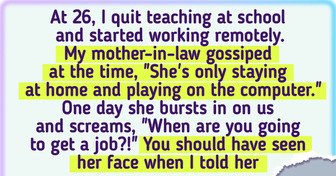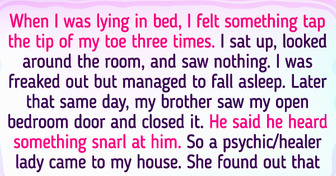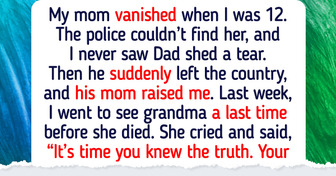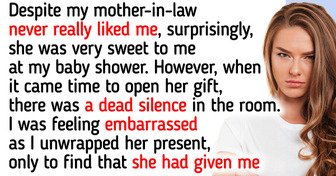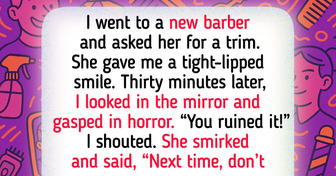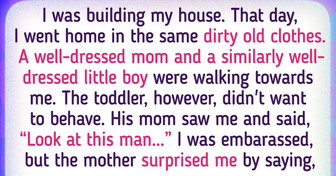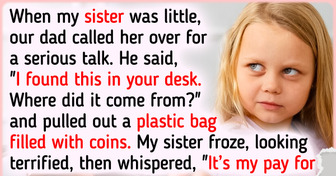16 People That Found Photos With Celebrities in Their Albums

So you come home after a long Friday at work and say to yourself, “Why can’t the weekend be any longer?!” You dread going to work on Monday. It’s only 2 days away, and you have so much to do! And then, as soon as you turn on the TV news, you hear the best announcement you could possibly imagine.
The week has been extended to 10 days instead of 7! You start jumping for joy. You’re thinking about a long weekend you’re going to have. Enough time to relax and maybe get out of town and go to the countryside.

But it turns out you haven’t listened to the end. Apparently, there will only be one extra day for the weekend. The other 2 days will be regular workdays. But, it doesn’t sound too bad: two extra days in the office BUT another full day added to the weekend. Why is there 7 days in a week and not 10 or 5?
The answer is hidden back in the ancient days of Babylonia, people often looked at the sky in search of answers. They were quite observant and noticed that the Moon had phases. Then, they figured out it took 28 days for the Moon to complete one cycle of these phases. (Interestingly, these days, the cycle is 29 and a half days.)
Anyway, the cycle begins with the new moon — that’s when the Moon isn’t visible. The Sun, the Moon, and Earth are lined up in such a way that we only see the dark side of the Moon. After that, it goes through the phases of half moon and crescent moon. And then it’s the full moon.
Starting from this point, the process is reversed: half moon, crescent moon, and, finally, it’s the new moon again. The Babylonians divided the cycle — 28 days — into four parts. That’s how they got 7 days — a week we still use today.
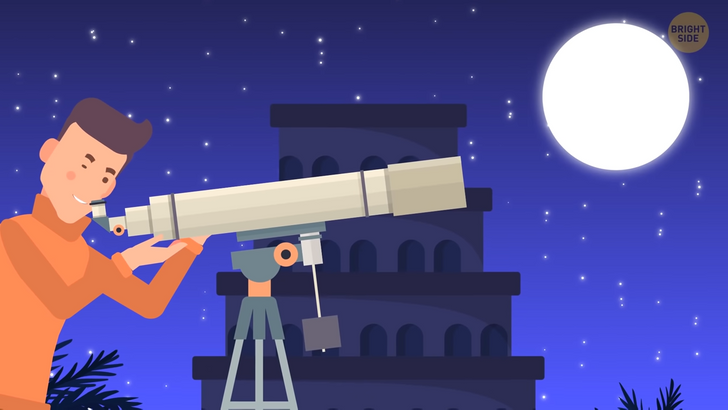
Plus, when people looked at the sky, they saw seven celestial bodies. Those were the Sun, the Moon, Mars, Mercury, Jupiter, Venus, and Saturn. Of course, now we know there are many more planets, stars, and other space objects out there. But at that time, only these ones were close enough to observe.
The day on Earth equals one full rotation of the planet around its axis. And a year is over when Earth makes one complete orbit around the Sun. It takes the planet 365 and ¼ days. That’s why there’s an extra day every four years — February 29. The year when it happens is called a leap year.
But back to your story. It’s now Friday, and you’re super excited! After all, you’re going to have an extra day for relaxing this weekend. Even though there will be 2 days of extra work. Oh, but it means that each month will have around 43 days!
That will bring a total of 516 days in a single year! Everything you’ve already planned for this year will have to be changed. Summer vacations and winter holidays will be longer. People will spend more time at school, university, and at work.
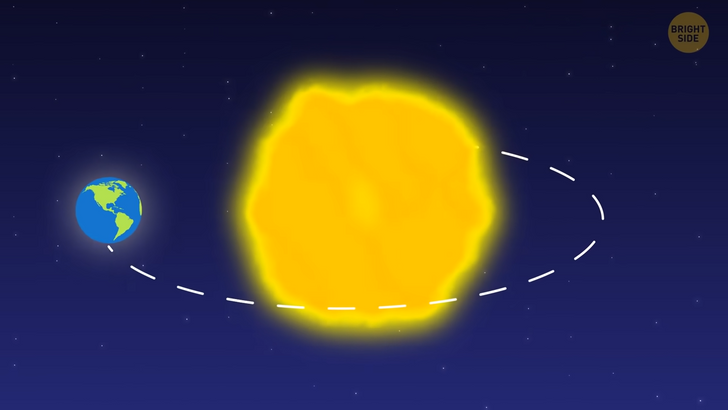
Can it mean that if there are 2 more working days, companies and corporations will have higher profits, and employees — increased productivity? Maybe. You’re in your car driving to your cabin by the lake. Three days of fresh air and breathtaking sunsets — pure bliss! As soon as you arrive, you dust off your rowboat and paddle toward the middle of the lake. Ahhh.
Finally, some peace and quiet! The weekend is over all too soon. It’s the evening of the 10th day of the week, and it’s time to go back to the city. The next morning you wake up to the reality of 7 days of work. You can’t help thinking about the trip you had this past weekend. Soon, you figure out that seven working days are exhausting.
In most countries, people work 8 hours a day. (But not in the Netherlands! There, people have around 6 hours of work a day and a total of 29 hours a week. This country officially has the shortest working week in the world!) But you don’t live in the Netherlands. It means you have a total of 56 working hours a week! You can handle the first two days easily. But on the third day, you show up sleepy and drained.
And you’re not even halfway through the week! By Friday, you’ve missed some deadlines at work and showed up late for several meetings. You forgot your speech when giving presentations. And you haven’t had a proper meal since the weekend! But you know the feeling — you’ve had it before when you still worked 5 days a week. So, you power through and finish first the week, then the month.
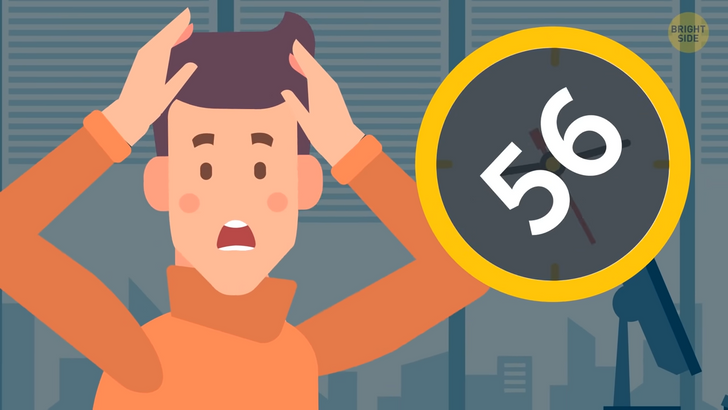
It doesn’t get better, though. Every time you go to the office, all you do is think about hiking and relaxing in your cabin. You look out of the window and see clear blue sky. As you shift your gaze to your computer screen, you feel dizzy. Your back is aching from all the sitting you’ve been doing, and your posture is worse than ever.
Your boss isn’t happy with your performance and urges you to up your game. But you can see that your colleagues are as worn out as you are. And they aren’t coping with the situation any better. One day, you notice that everything (and everyone) in the office irritates you. This makes you snap at people. And it goes both ways.
It seems that even your buddies, who you’ve been working with for more than 5 years, can’t stand you. Being rude and forgetting to answer calls or emails doesn’t help your case. Six months later, you can barely look at your computer screen anymore. Three days off aren’t enough to compensate for the 7 working days.
Everyone else in the office feels the same way. Many of your colleagues have already quit. They decided to find new jobs with better working conditions. You had to get glasses to work at the computer. With seven days of straining your eyes week after week, your eyesight has become much worse.
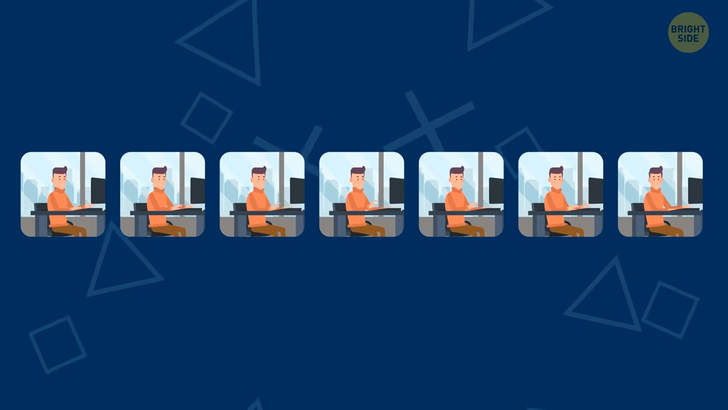
You keep reminding yourself the winter holidays are only 2 months away. But that’s 86 days instead of 60, like before. Fast-forward to the holidays. It’s the final week before everyone goes on vacation. You can’t stop dreaming about spending your free time at the beach.
But then, an announcement comes out. For some mysterious reason, winter break has been cut short. Which means you have to give up on your dream of surfing, sunbathing, and swimming in the ocean. You’ll only be able to go as far as your cabin. What are you supposed to do there in the middle of winter — build snow castles?!
Everyone around seems to be in despair, just like you. People are starting to lose hope. A professor who is used to teaching students 5 days a week now has to get ready for seven days of study. It doesn’t mean that semesters will only continue for a couple of months. They’ll be as long as ever — or even longer. Summer vacations will remain the same too.
A construction worker will be exhausted after seven working days. Laying bricks, operating a crane or a jackhammer, and so on will become even more tiresome than before. Most building projects last for months. And when workers are tired and don’t have enough rest for so long, mistakes are bound to happen. When it comes to construction, even the smallest mistake can cost a lot.
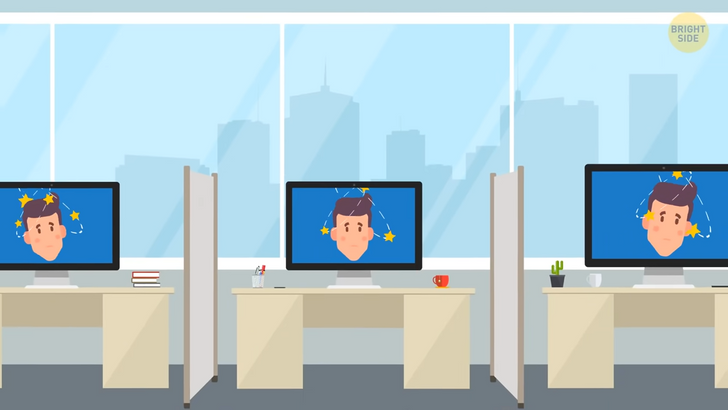
You’ll need more gasoline for your car since you’ll have to drive to work more often — 7 days a week instead of five. And since there will be a high demand for gas, its price will eventually increase. Pretty soon, it will also lead to fuel shortages. More and more people will start to use public transport. Soon, it will be mostly powered by electricity.
Overworking will change people’s behavior. The average person with a regular job will be a lot more stressed and irritated. A 3-day-long weekend won’t be able to compensate for 7 long working days. More and more people will go to doctors with their newly-acquired problems. But doctors will be also working extra hours, and they’ll have issues of their own!
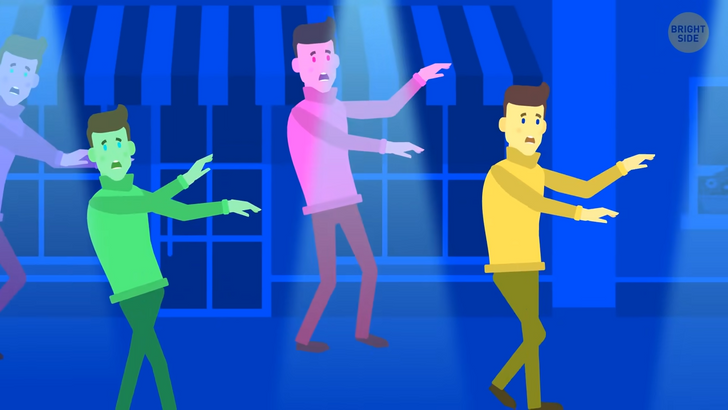
People who have to work 2 jobs to support their families will suffer the most. They won’t be able to handle much greater pressure trying to make ends meet. People will have to commute more.
Plants and factories will work non-stop seven days a week instead of just five. It’ll make air pollution worse. Plus, working longer hours, industries will need more natural resources. All you can hope for is that this insane experiment will finish as soon as possible.

